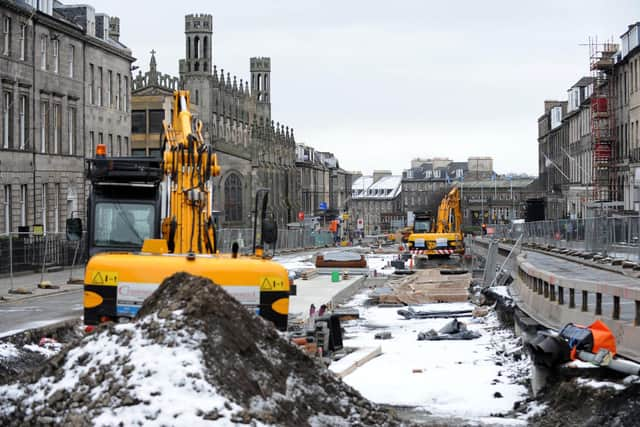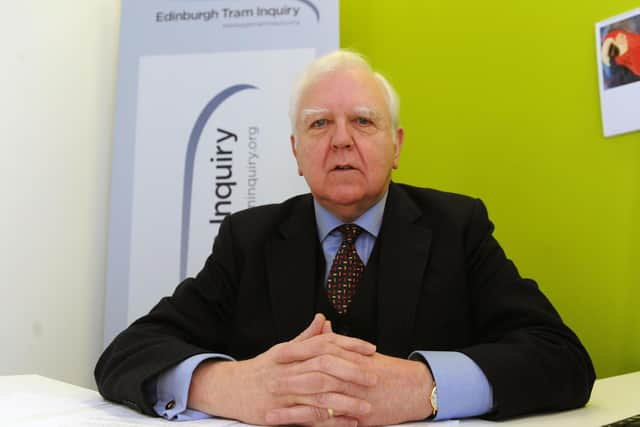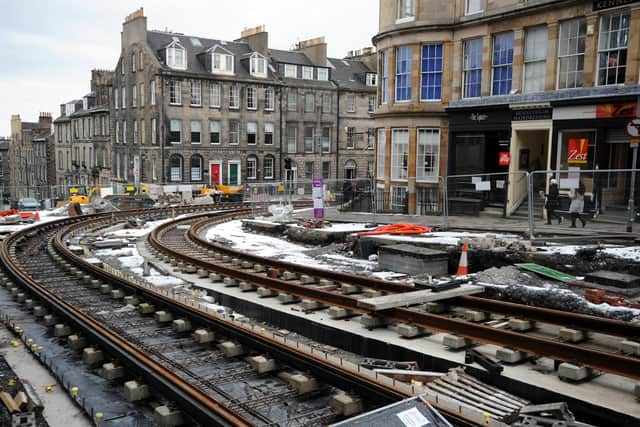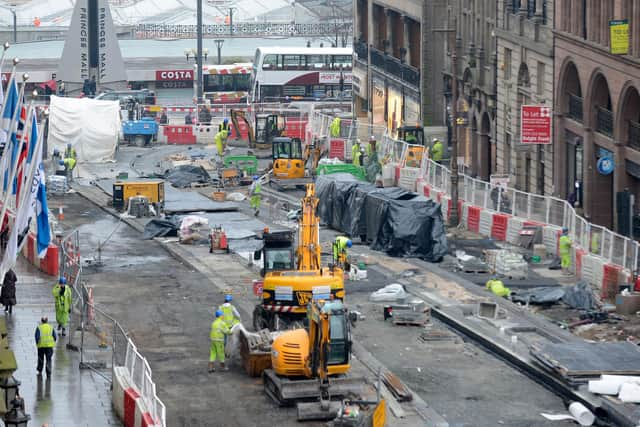Why is Edinburgh's wait for tram inquiry report now longer than for Chilcot verdict on Iraq?
and live on Freeview channel 276
Let us know what you think and join the conversation at the bottom of this article.
The inquiry led by former Lord Advocate Lord Hardie into Edinburgh's behind-schedule and over-budget tram scheme would identify what had gone wrong and spell out the lessons to be learned so the same mistakes would not be made again.
But nearly seven and a half years after the inquiry was announced and three and a half years after the public hearings finished, Lord Hardie's report on the tram project has still not been published.


Advertisement
Hide AdAdvertisement
Hide AdAnd instead of settling the issues around the trams debacle, the inquiry has become as much of a talking point as the project it was established to investigate.
The inquiry team says the report will be published "as soon as practicable".
But Lord Hardie's probe has now lasted longer than the Chilcot inquiry into the Iraq war.
When Alex Salmond, the then First Minister, announced the inquiry, just a few days after the trams had started running between the city centre and Edinburgh Airport, he said it would be "swift and thorough".


Advertisement
Hide AdAdvertisement
Hide AdThat was on June 5, 2014 – seven years and five months ago, compared with the seven years and 21 days between prime minister Gordon Brown's announcement of the Iraq war inquiry on June 15, 2009, and Sir John Chilcot's report being published on July 6, 2016.
And it may not be long before the cost of the tram inquiry also exceeds the cost of Chilcot. According to figures released last month, Lord Hardie's probe has cost £12 million so far. The final bill for Sir John's was £13 million.
A source involved in the trams project said: “This is the first inquiry in history which has turned into a bigger scandal than the one it was set up to look into in the first place.”
When the tram plans were first unveiled in 2003 they held out the prospect of Edinburgh getting a transport system to rival many European cities.


Advertisement
Hide AdAdvertisement
Hide AdBut the project was dogged by problems at almost every turn. There were tensions between the council and TIE, its arms-length company in charge of the project. The contract that was signed seemed to pave the way for clashes with the contractors. Work that had been completed had to be ripped up and redone. Key figures resigned at regular intervals. And, of course, the costs kept on rising – from the original £375m budget to the eventual £776m which can be rounded up to £1 billion with the interest on borrowing and other costs.
Construction began in 2008 but later the spiralling costs led to the decision to abandon the city centre to Leith part of the route despite the massive disruption residents and businesses had already suffered from roadworks as utility pipes and cables were cleared out of the trams’ path.
By 2010 there were already calls for an inquiry into the project and in June 2011 Alex Salmond backed the idea. There were arguments about whether the inquiry should be launched immediately to learn lessons as quickly as possible or whether that would divert people from the main job of getting the project completed.
In the end, the first trams to carry passengers took to the tracks on May 31, 2014 and Mr Salmond announced the inquiry the following week.


Advertisement
Hide AdAdvertisement
Hide AdAfter a year, the inquiry had already spent almost £1m and by January 2016 the bill had passed £2m as investigators sifted through six millions documents. In July 2016 the cost had reached £3.7m and questions were being asked about why the inquiry as taking so long.
The public hearings finally began on September 5, 2017 and, with various breaks, lasted until May 24, 2018, a total of 18 weeks’ evidence. The official statement at the end said Lord Hardie would publish his report “in due course”.
But the reason for the long delay remains a mystery.
Lothian Tory MSP Jeremy Balfour, who was a councillor at the time of the project and gave evidence to the inquiry, says: “It's an outrage. All the evidence has been taken, we're simply waiting for Lord Hardie to produce his report. No-one will tell us when it's going to be available.
"My understanding was that before the report is published everyone who is mentioned in it would have an opportunity to comment and that hasn't happened either, so it's not even as if it's going to be published in the next couple of months.
Advertisement
Hide AdAdvertisement
Hide Ad"Yes there were difficult issues, but they're not that difficult.
“The question for me is: what’s in this report that people don’t want it to be seen by the public?”
Depute council leader Cammy Day said the long wait for the report was frustrating.
“We have been given no information from the inquiry team or the government so we have no idea what the delays are.
Advertisement
Hide AdAdvertisement
Hide Ad“The council has been quite open and said we will accept the recommendations of the inquiry whenever it reports and do whatever we need to do as a result of it.
“But we would like the inquiry to be finished as soon as possible.”
The council resisted calls to delay the extension to Leith until the report was available so lessons could be learned.
Cllr Day said: “We're now two-thirds into the next phase of the trams and we’ve still not had the report. Whatever we need to learn from it we will, but we also need to get on with building a tram that's fit for a city for the 21st century.”
Advertisement
Hide AdAdvertisement
Hide AdLord Hardie’s inquiry may have lasted longer than the Chilcot one, but at least it has not yet taken as long as the Bloody Sunday inquiry which cost £192 million and lasted a total of 12 years and five months.
A spokesperson from the Edinburgh Tram Inquiry said: “Lord Hardie’s remit is to conduct a robust inquiry and he has made it clear it will take as long as is necessary to get the answers the public wants in relation to the issues surrounding the Edinburgh Trams project."The Inquiry’s evidential database contains over three million documents that have to be carefully considered which is an extensive but vital task.“We continue to make good progress towards producing the final report and recommendations which will be published as soon as practicable.“The Inquiries Act 2005 obliges the Chair to consider cost at all times since it is funded from the public purse. Throughout the process all efforts have been made to ensure the Inquiry delivers best value.”
A message from the Editor:
Thank you for reading this article. We're more reliant on your support than ever as the shift in consumer habits brought about by coronavirus impacts our advertisers.
If you haven't already, please consider supporting our trusted, fact-checked journalism by taking out a digital subscription.
Comment Guidelines
National World encourages reader discussion on our stories. User feedback, insights and back-and-forth exchanges add a rich layer of context to reporting. Please review our Community Guidelines before commenting.
